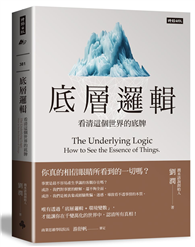This book examines the most important writings of a tenth century Islamic theologian and jurist who was one of the most original thinkers of his period. It argues that Qadi al-Nu’man’s works constituted new and vital genres in Ismaili Shi’i literature, an emergence necessitated by the Fatimids’ transition from revolutionary movement to statehood, and by their desire to establish their authority as a Shi’i alternative to the Sunni Abbasid caliphate. Al-Nu’man, already famous in the Fatimid era, produced a legacy which consists of a school of law, historical and biographical works, new interpretations of Ismaili doctrine, and the formulation of a ceremonial language achieved through his work on court protocol.
| FindBook |
有 1 項符合
Between Revolution And State: The Path To Fatimid Statehood, Qadi Al-nu’man And The Construction of Fatimid Legitimacy的圖書 |
 |
Between Revolution and State: The Path to Fatimid Statehood 作者:Hamdani 出版社:I. B. Tauris & Company 出版日期:2006-05-01 語言:英文 規格:精裝 / 210頁 / 22.1 x 14.7 x 2.5 cm / 普通級 |
| 圖書館借閱 |
| 國家圖書館 | 全國圖書書目資訊網 | 國立公共資訊圖書館 | 電子書服務平台 | MetaCat 跨館整合查詢 |
| 臺北市立圖書館 | 新北市立圖書館 | 基隆市公共圖書館 | 桃園市立圖書館 | 新竹縣公共圖書館 |
| 苗栗縣立圖書館 | 臺中市立圖書館 | 彰化縣公共圖書館 | 南投縣文化局 | 雲林縣公共圖書館 |
| 嘉義縣圖書館 | 臺南市立圖書館 | 高雄市立圖書館 | 屏東縣公共圖書館 | 宜蘭縣公共圖書館 |
| 花蓮縣文化局 | 臺東縣文化處 |
|
|
圖書介紹 - 資料來源:博客來 評分:
圖書名稱:Between Revolution And State: The Path To Fatimid Statehood, Qadi Al-nu’man And The Construction of Fatimid Legitimacy
|











